Five in a row? Six straight? 11 out of 13? Is a World’s winning streak even possible today?
Readers younger than 30 might not be aware of the following records:
From 1965 to 1969, Muirhead & Sons won five consecutive World Championships.
The Strathclyde Police Pipe Band won six straight World’s from 1981 to 1986.
The same band won 11 of 13 World Championships from 1979 to 1991, disrupted only by Shotts & Dykehead Caledonia in 1980 and the 78th Fraser Highlanders in 1987.
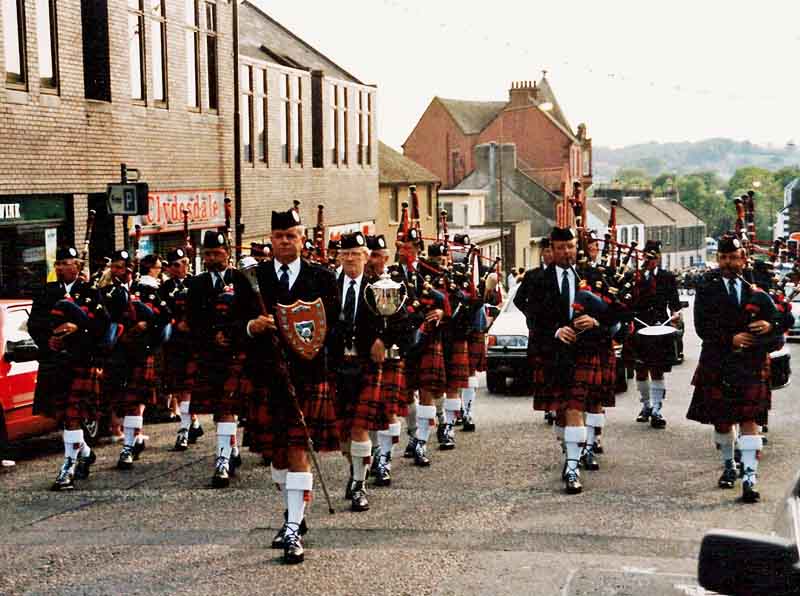
The closest any band has come to matching six straight was Field Marshal Montgomery from 2011 to 2014, taking four consecutive, and the band won six out of eight World’s from 2011 to 2018. They missed only 2015 and 2017 when Shotts and Inveraray & District won the title.
For sure, Muirheads had competition. Shotts, Glasgow Police, Red Hackle and the Edinburgh City Police were constantly nipping at their heels.
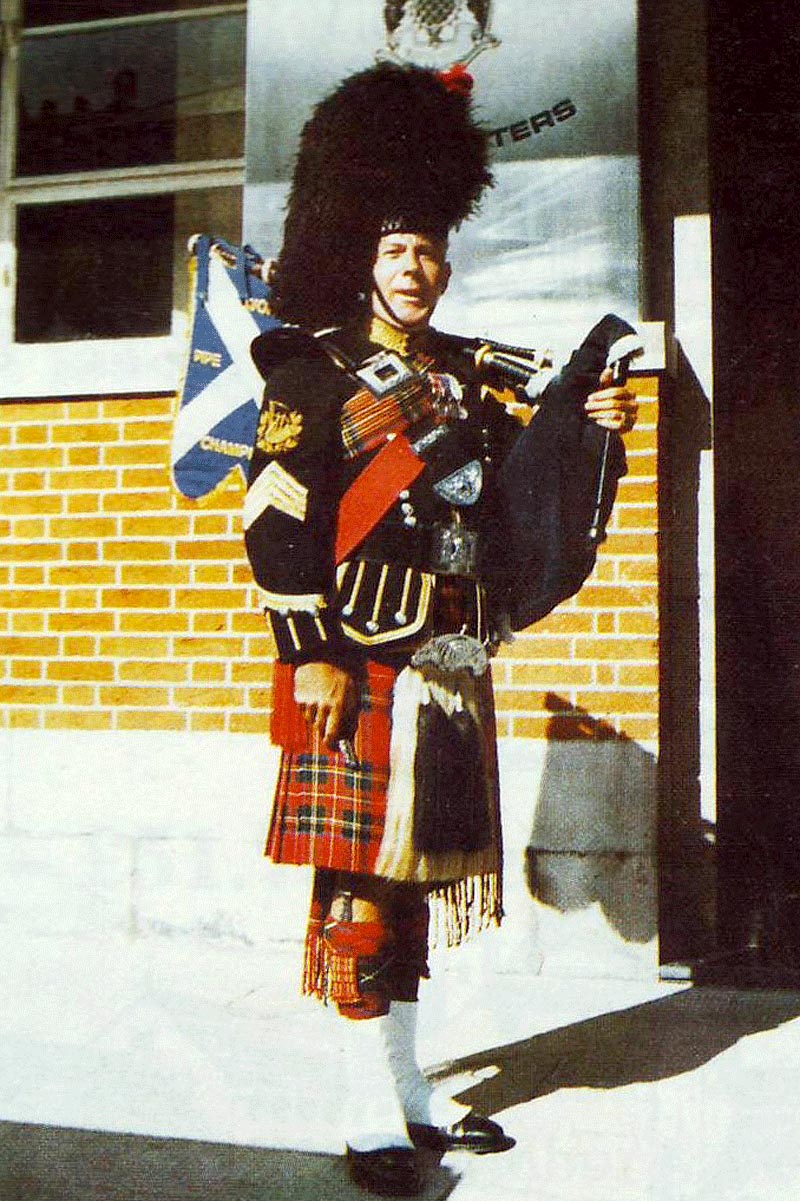
Similarly, the Strathclyde Police had the likes of upstart young Fifers, Dysart & Dundonald, Lothian & Borders Police, Shotts, Boghall & Bathgate, Polkemmet and others giving them a run for their World’s money.
It wasn’t a cakewalk for either band and especially not Muirheads, which relied on the elite solo piper musicality of Pipe-Major Bob Hardie to play in a famously “musical” style in the pre-medley days of only MSRs. By most accounts, they featured a “sweet” chanter sound attractive to the solo pipers who used to judge back then, like John MacFadyen, John MacLellan and Seumas MacNeill.
Remarkably, only about 10 years after Muirheads’ streak, the band would fold following years of grasping for players, drawing from several Canadians in the 1970s to fill out the ranks before finally calling it a day.
The dominance of the Strathclyde Police under Pipe-Major Ian MacLellan and lead-drummers Alex Connell and John Kirkwood was different. The impressive voluminous chanter sound the band consistently created inspired a host of pipe-majors, all trying to discover the recipe for tonal success.
MacLellan’s solo career saw him become an elite-level light music competitor, and having players such as Harry MacAleer, Angus J. MacLellan, Iain Plunkett, John Wilson, and others in the ranks only helped the group perform with the finesse of a Silver Star MSR competitor.
78th Frasers Pipe-Major Bill Livingstone, Field Marshal Montgomery’s Richard Parkes and Boghall & Bathgate’s Ross Walker – all competitive Strathclyde Police rivals – would study MacLellan’s methods. Each hoped to meet at least what was then a new benchmark in chanter clarity and power.
We can look at these streaks of remarkable consistency and wonder if they’re realistic or even possible today.
For those who weren’t around when Strathclyde Police were on their unprecedented winning tack, please know the temperature of the times:
Some perceived the “Polis” as a favourite of the RSPBA and many of the judges. The band often used the RSPBA’s 45 Washington Street headquarters in Glasgow for practices, and the local pride in the band was palpable. If ever there were a perceived or real home field advantage, the Strathclyde Police had it.
When the Strathclyde Police entered an overcast or rainy competition arena, it was only half-joked that the clouds would part and the sun would come out. Those present could attest to that being true.
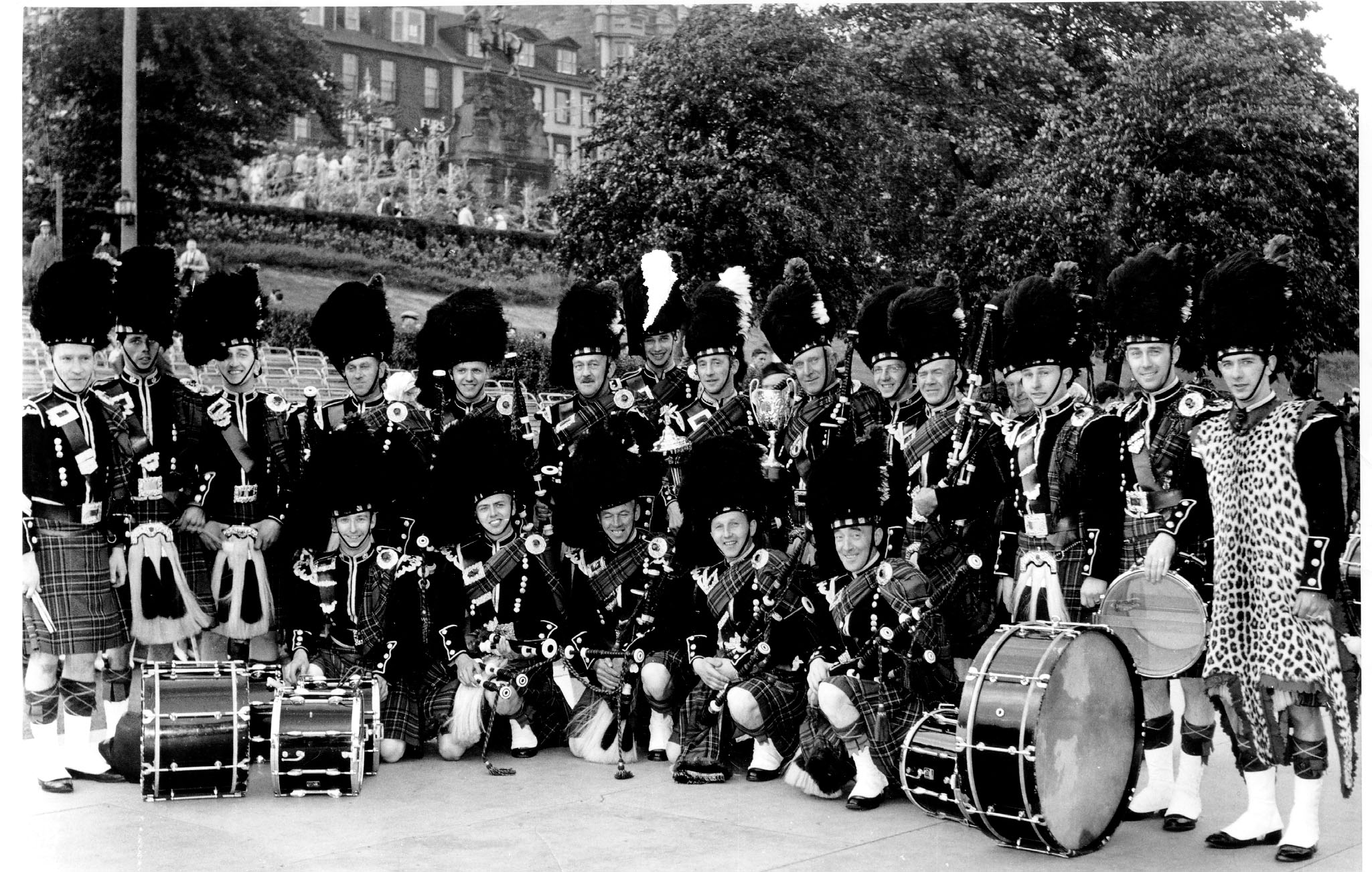
As the last truly “professional” elite civilian pipe band, the Strathclyde Police were made up almost entirely of serving police officers. They were primarily in the Strathclyde Police Force to play in the Strathclyde Police Pipe Band. The force would actively recruit talented young pipers and drummers to consider a career in policing, but with an understanding that the job would entail band practices pretty much every day of the week.
Whether it was a rule within the force that those who sought and got a promotion beyond constable could not play in the band is uncertain, but the group lost top-rank players, such as Wilson, when they advanced their non-piping career.
By the 1990s, perhaps not coincidentally, the Strathclyde Police relaxed its quasi-rule that players had to be serving officers and started to bring in “guests.” As players retired from the force, they were often replaced with non-serving members to the point that, by the 2000s, the reverse was true, and police officers in the band numbered only a handful.

Similarly, the Edinburgh City Police Force, by the mid-1970s, had dropped its requirement for players to be serving officers. By around 1976, the year after the band’s win of the World’s at Corby, England (which would prove to be its last), the band was already increasingly relying on guests. By the end of the band in 2013, the group was affiliated with the police force in name only.
Given the professional nature of the Glasgow/Strathclyde and Edinburgh City/Lothian & Borders police pipe bands, the fact that Muirhead & Sons, centred in relatively remote Grangemouth and sponsored by a lumberyard could maintain such a string of success while practicing a few times a week is all the more remarkable. We can say the same about Shotts & Dykehead and other civilian bands made up mostly of regular folks fitting in their piping and drumming hobby around work demands.
The idea of a top-level pipe band that practices five days a week year-round and gets paid for it is unrealistic today. Even elite solo pipers who haven’t made teaching and performing on pipes their career are becoming more the norm than the minority.
Practicing, performing and competing as part of your job provides an undeniable advantage. The playing fields in the 1970s, ’80s and early ’90s were tipped to favour those professional bands.
We can also say that today’s top-tier bands are more closely matched. Rarely is there a runaway winner at the World’s.
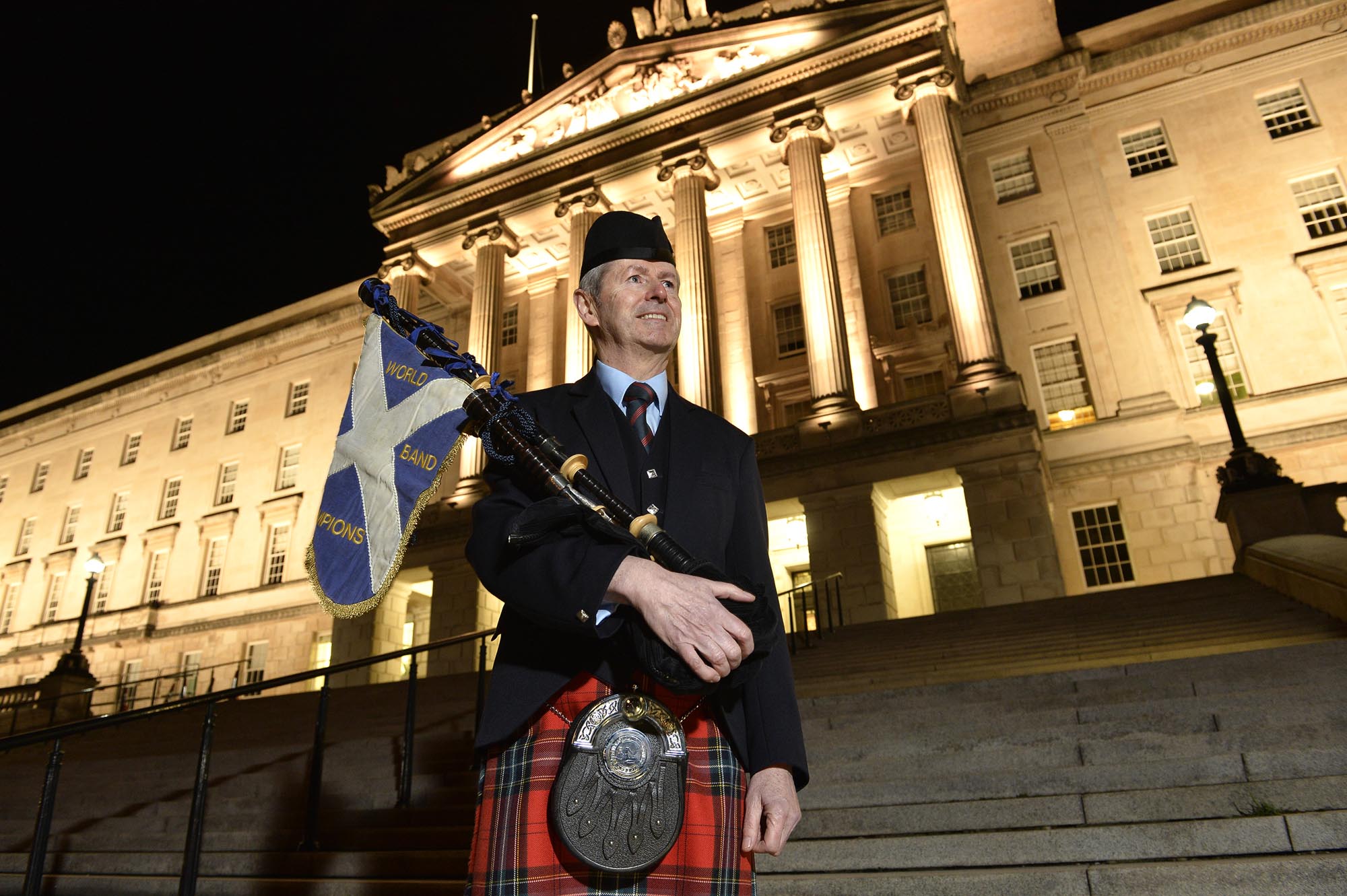
The “Big Six” of the 1970s of Dysart & Dundonald, Edinburgh Police, Muirhead & Sons, Red Hackle, Shotts & Dykehead and Strathclyde Police are more like a “Big Eight” or even nine today when we consider non-UK bands.
It’s worth noting that the same pipe-major and lead-drummer usually lead bands at the top for a long time.
Think about it. Bob Hardie: 16 years. Iain MacLellan: 22 years. Edinburgh City Police P-M Iain McLeod: 16 years. Richard Parkes: 42+ years. Former Simon Fraser University P-M Terry Lee: 32 years. Reid Maxwell: 30+ years. Inveraray & District P-M Stuart Liddell: 17+ years. Inveraray L-D Steven McWhirter: 14+ years. Boghall & Bathgate L-D Gordon Brown: 30+ years. ScottishPower P-M Chris Armstrong: 16+ years. Field Marshal Montgomery L-D Keith Orr: 20+ years. Terry and Alen Tully: 38+ years combined. Stephen Creighton: 20+ years.
Conversely, bands that see a churn in leadership rarely make a consistent long-term mark.
In the past, leaders and playing members tended to stay with the same band. There seemed to be more commitment through thick and thin and a sense of community that isn’t as evident today.
The rosters of bands at any level, including at the top of Grade 1, often change substantially from year to year. Steady leadership helps mitigate losses and bridge new players to the needed style and standard. Almost always, leadership continuity is crucial to results consistency.
![Pipe-Major Terry Lee, Simon Fraser University, 2009. [Photo pipes|drums]](https://www.pipesdrums.com/storage/2018/01/Lee_Terry_Worlds2009_med-1.jpg)
Given the general preference for bouncing around bands due to more accessible travel, strides in communications technology, or simply a desire for variety and constantly imagining greener grass over that fence, it’s far more challenging to keep a crew of hobbyists together.
Today’s instruments, reeds and accoutrements are better and more conducive to good playing than ever. Unlike pre-Internet pipe bands, there are no real “secrets” to achieving a good or even great sound. You need talented players, like always, and, like always, you need leaders who know what they’re doing, along with an ability to manage people, attract new talent and select and arrange music that will satisfy the troops and the judges alike.
All of this is to say that today there is a more equal playing field. There are few if any secrets to success. Innovations and new techniques are quickly shared on the internet or become commercially available. The days of clandestine reconnaissance missions hovering around practices or at the tuning park have been replaced by limitless videos and social media posts readily available on the internet.
And as we all know, bands also benefit from pure dumb luck. A lucky draw that sees the band competing at or near the end helps. Not having to play in the early morning in Glasgow when it’s misty or raining and almost always much colder than the afternoon. Even with breakthrough technology and gizmos, Highland pipes and pipe band drums work better in warm and dry conditions.
And they need judging luck. We all know that every RSPBA pipe band judge is as honest as the day is long, but we also know that every judge prefers a particular sound and style over others. A track of some or even most individual judges’ results would invariably show a preference towards one or two bands.
“With the quality of all bands out there now, there are probably six bands capable of winning the World’s now on their day.” – Pipe-Major Alen Tully, St. Laurence O’Toole
“It really depends,” says Alen Tully, pipe-major of perennial contenders and winners of the 2010 World’s, St. Laurence O’Toole. “I think with the right amount of luck, then it’s possible, I suppose. However, with the quality of all bands out there now, there are probably six bands capable of winning the World’s now on their day. Take this year for example, Inveraray & District with two majors and Field Marshal Montgomery with one, so there are two in contention. We’ve been in the top three for the last eight years and, in the last competition season, won two majors, so there is no reason why we couldn’t win. Simon Fraser University won one of the Medley sections a few years back and have a fantastic track record at the World’s, and there are a number of other bands who have serious potential on any day.”
![Pipe-Major Alen Tully, St. Laurence O'Toole, 2016. [Photo pipes|drums]](https://www.pipesdrums.com/storage/2020/04/Tully_Alen_Worlds2016_home.jpg)
In 1986, the Strathclyde Police had won five straight, tying the record held by Muirhead & Sons for almost two decades. The year before, Simon Fraser University had finished second to the Police at the World’s at Hamilton, Scotland, and not a few thought the band should have won.
Leading up to the World Championships back in Glasgow in 1986, it seemed almost predetermined that the Strathclyde Police would break the record.
Terry Lee, pipe-major of Simon Fraser University when the band won six World titles, including two in a row in 1995-’96, says, “I recall being right in the middle of a BBC production titled Six in a Row in 1986. In the end, it was a fabulous show. A camera crew followed the Strathclyde Police all over that year as they strived for their sixth World’s in a row. As we were runners-up in 1985, we were quite surprised to see the same crew at our Scotland digs on arrival.”
Sure enough, the Police won the contest a few days later at Bellahouston Park. The judges put paid to Simon Fraser University’s hopes of winning, and the band finished a distant fourth. But at the same time, they put the 78th Frasers second, perhaps setting up that band’s win the following year.
But it can be said that, even back in 1987, people were ready for a change and, dare we say it, a bit tired of the dominance of the Strathclyde Police. Perhaps the judges felt the same and, if there were any doubt, they gave the benefit to the 78th Frasers and Simon Fraser University, who finished second. Strathclyde Police dropped to a shocking third.
Again, winning one World’s can be as much about good timing and luck as it is about excellent performances. The latter is always assured; timing and luck, not so much.
“The enormity of those achievements cannot be underestimated.” – Pipe-Major Richard Parkes, Field Marshal Montgomery
The only still-competing pipe-major to experience a World’s winning streak is Field Marshal Montgomery’s Richard Parkes with four in a row. No other active pipe-major has had even two straight.
We asked Parkes if he thinks a World’s streak of five or six or more is even possible today.
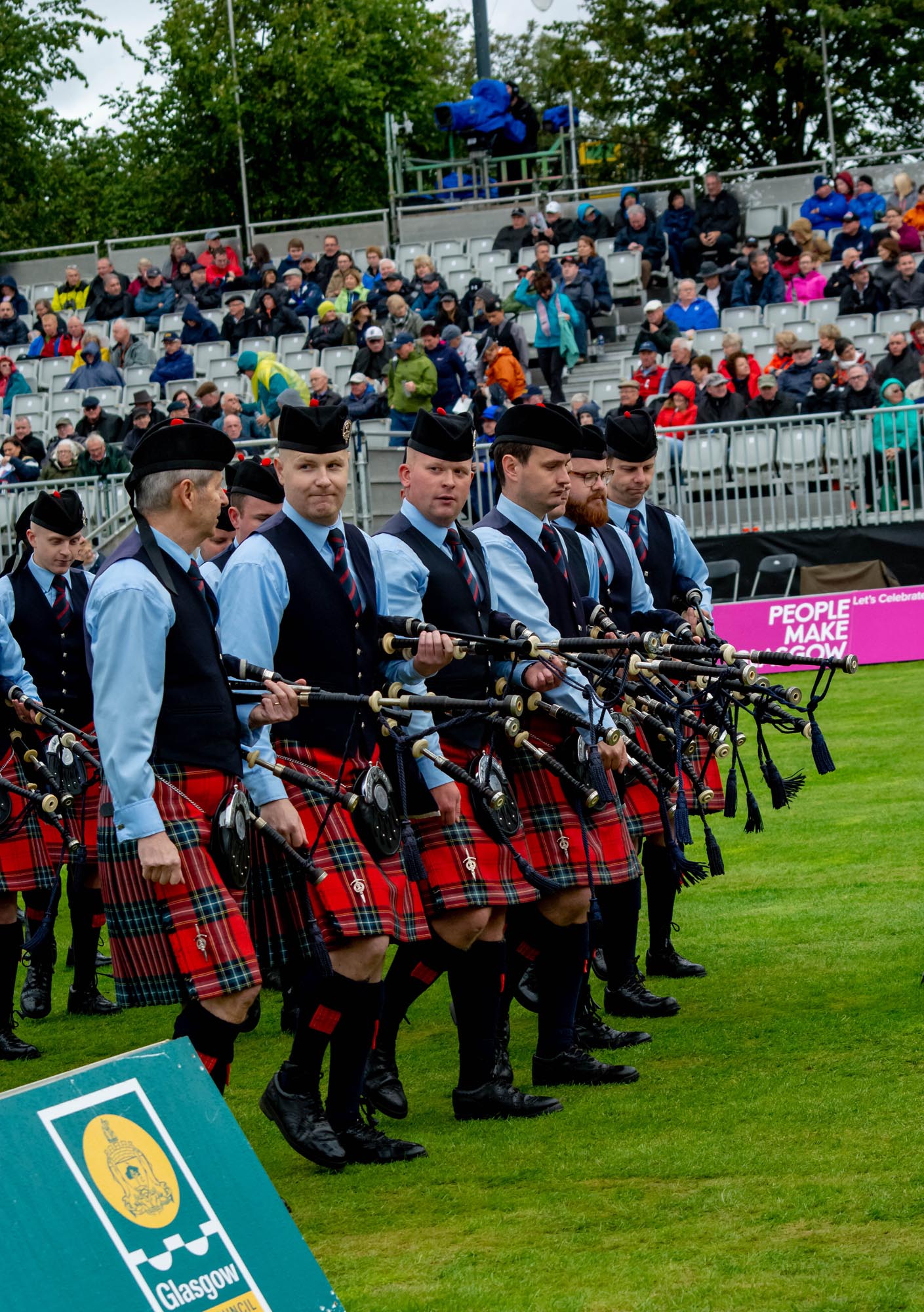
“I think it’s certainly possible to put together a streak of wins similar to Strathclyde Police and Muirheads, but it will take an enormous amount of consistency for a prolonged period of time,” Parkes says. “There is no doubting the quality and consistency of those two bands, and you can only be amazed by those winning streaks. Nowadays, there are a lot of high-quality bands at the top of Grade 1 competing for the world title, but if you look at the other prizewinners in the heyday of Strathclyde and Muirhead’s – the ‘Big Six’ – they were pretty high quality as well, so the enormity of those achievements cannot be underestimated.”
Terry Lee, who led Simon Fraser University to six World’s titles, including two consecutively in 1995-’96, says: “Six seems like such a big number these days and must feel like a decade when one is ‘inside’ the quest,” Terry Lee added. “To use a sports analogy, the Colorado Avalanche just won hockey’s Stanley Cup Championship, ending the Tampa Bay Lightning’s quest for a three-peat. That would have been magnificent and is only three – yes, only. Similarly, the New York Yankees, Montreal Canadiens, or Tiger Woods struggle to be what they once were: dynasties. For pipe bands, I feel like there is more parity than ever – more good bands, technology, skills, teaching, availability of products, mobility of players, and so on, and all contribute to a global standard unmatched in history. For a champion, even the slightest loss of an edge will not be enough to repeat, let alone six-peat.”
Coulda woulda shoulda. Pipe band history is rife with “if only this judge had . . .” near-misses that cost consecutive wins. Top-level competitions are decided by splitting the hair keeping a cane drone reed going. It takes incredible skill and unabashed pure dumb luck to put together streaks, as we’ve seen in the past. Are they possible? Sure, anything’s possible. But as the art progresses, long winning streaks are increasingly unlikely.
“To answer the question more directly then, in all honesty, no, I don’t think it can happen,” says Alen Tully. “There is too much quality in the other bands for one band to dominate the World’s in this way and, with four performances now counting towards the overall winner – which is the right way to do it in my view – then it makes it even harder to win.”
Thirty-one years after the Strathclyde Police Pipe Band’s remarkable record of 11 out of 13 titles, will we ever see the like again?
Perhaps Terry Lee sums it up best: “Celebrate the one, I say – one at a time.”
Did you enjoy this feature? If your already a pipes|drums subscriber, thank you! If not, please consider subscribing or making a donation to help us sustain the publication. We are nonprofit and truly independent with no association or other organization propping us up. The only things we sell are subscriptions and advertising, so we appreciate your support!



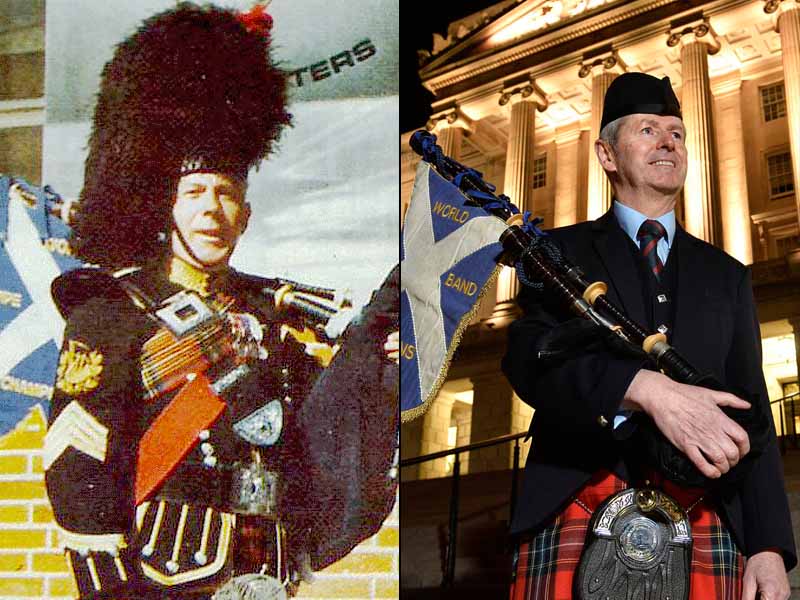
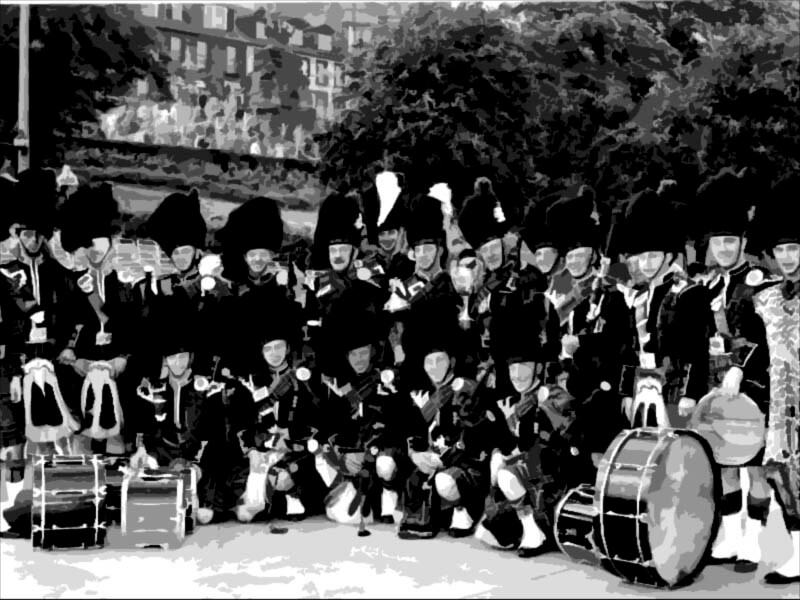
NO COMMENTS YET